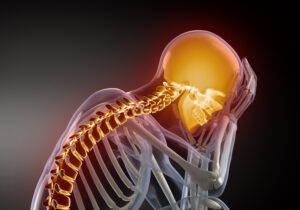Anoxic and Hypoxic Lawyer in Denver, CO
 Your brain needs a continuous supply of oxygen and without that continuous flow of oxygen your brain cannot survive. Interrupting the supply of oxygen immediately causes disturbances in the brain, and irreversible damage can follow behind.
Your brain needs a continuous supply of oxygen and without that continuous flow of oxygen your brain cannot survive. Interrupting the supply of oxygen immediately causes disturbances in the brain, and irreversible damage can follow behind.
The question is, what is the difference between hypoxic and anoxic brain injury? And when should you seek an anoxic and hypoxic lawyer in Denver, CO?
What is a Hypoxic Brain Injury?
When you have a partial supply of oxygen to the brain, that is called hypoxia and can cause a hypoxic brain injury.
What Is an Anoxic Brain Injury?
When you have a complete interruption to your oxygen supply to the brain, that is going to cause an anoxic brain injury.
Causes of Anoxia and Hypoxia
There are many causes of anoxia and hypoxia, and some of those are listed below:
- Cardiac arrest
- Respiratory arrest
- Irregular heart rhythm
- Very low blood pressure
- Suffocation
- Choking
- Strangulation
- Asthma attack
- Near drowning
- Exposure to high altitudes
- Smoke inhalation
- Carbon monoxide inhalation
- Poisoning
- Drug overdose
This is by no means a full list of potential causes, but it can give you a general idea of the kinds of things that can cause hypoxia or anoxia.
When Might You Need a Hypoxia/Anoxia Lawyer?
If you or your loved one suffers an anoxic or hypoxic brain injury due to another person, whether that’s in a car accident, or because of negligence, you have the right to seek an anoxic and hypoxic lawyer in Denver, CO as they will best know how to approach your case.
You may seek an attorney who focuses on hypoxic and anoxic brain injuries in Denver, CO, if you believe that you have irrefutable proof that your brain injury was not caused by anything that you did. Because there is such a wide range of causes, an attorney from Richard J. Banta, PC can help you decide if you or your family has a case. Your attorney will be with you every step of the way.
Is Hypoxic and Anoxic Brain Injuries the Same as a TBI?
No. A traumatic brain injury involves physically damaging the brain’s tissue and structure, while a hypoxic and anoxic injury is purely disrupting the oxygen supply to the brain. Doctors may have issues with diagnosing anoxia and hypoxia, because these injuries causes are not clearly visible.
Symptoms and Effects of Hypoxic and Anoxic Brain Injuries
Some typical symptoms of hypoxia and anoxia are:
- Short-term memory loss
- Numbness
- Dizziness
- Headaches
- Confusion
Some typical severe injuries that hypoxia and anoxia can cause are:
- Limb weakness
- Balance issues
- Memory loss
- Difficulty speaking
- Mood swings
- Cortical blindness
- Concentration issues
If you or a member of your family suffers from these symptoms or severe injuries after sustaining a hypoxic or anoxic brain injury, reach out to a hypoxic and anoxic brain injury lawyer in Denver, CO, so that you can ensure you are receiving the best care, and the compensation that you deserve. The attorney’s at Richard J. Banta, PC law firm are there for you and your family every step of the way.

